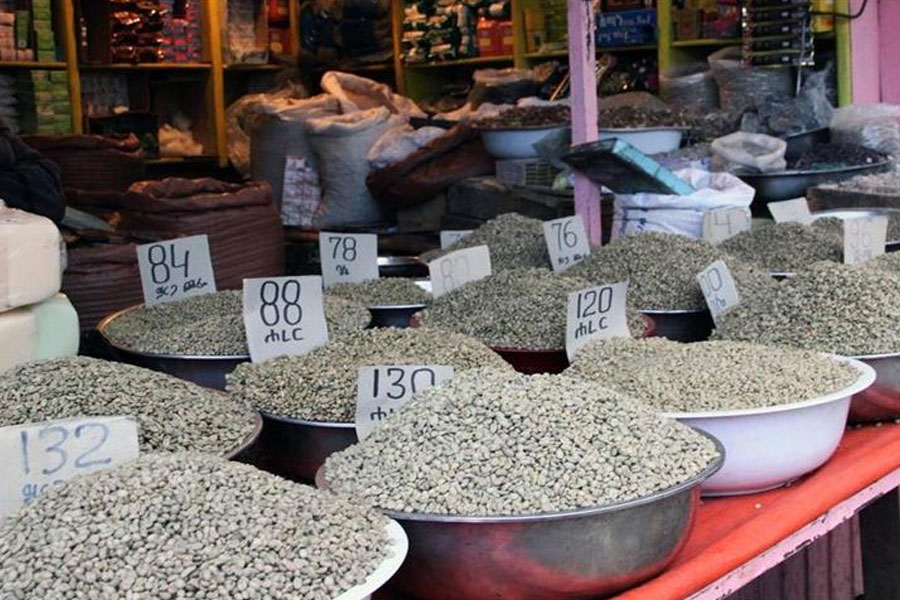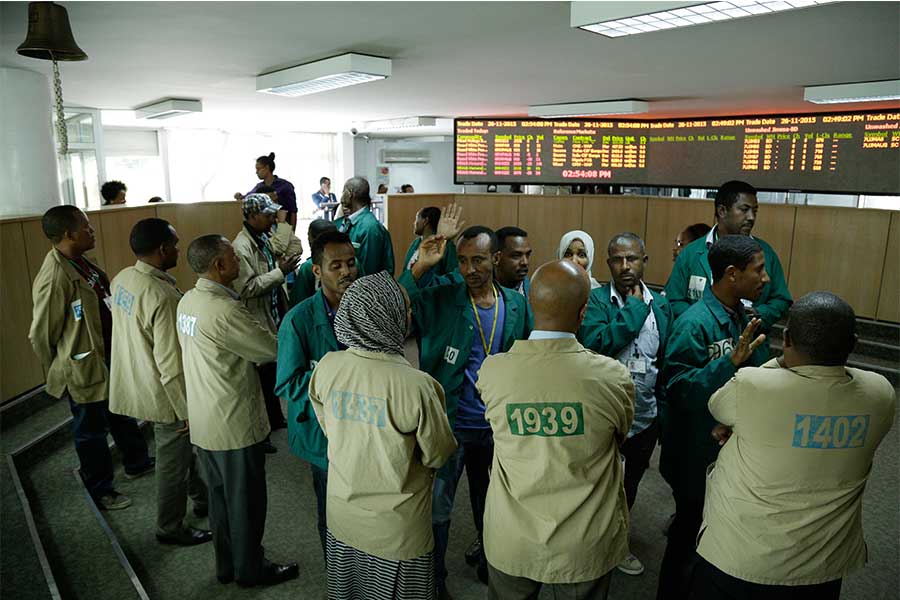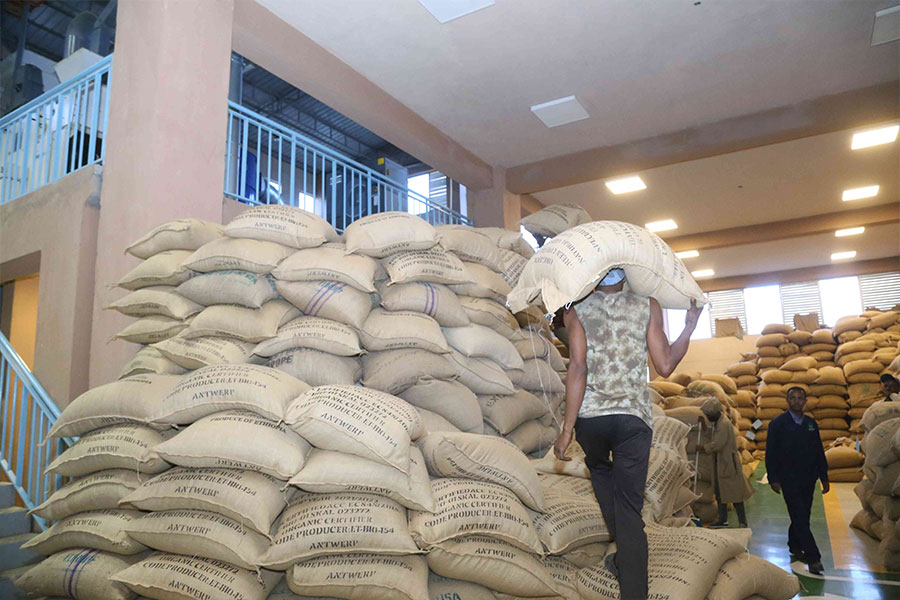
Radar | May 15,2021
Tens of thousands of farmers in the primarily coffee-growing areas of the south face risk of loss with the spread of a fungus damaging coffee beans.
Over 32,000 farmers in the Gedeo Zone of the Southern Regional State have been affected by the spread of the disease, which has gripped 4,600ht of farmland, with potential losses estimated at 41,000qtl of coffee.
The fungal disease, which mainly affects high-altitude areas on the African continent, was first observed in Ethiopia in the early 1970s. The affliction is caused by a species of fungus, and the disease is commonly known as Coffee Berry Disease (CBD). It is difficult to detect, as signs of the disease are rarely exhibited on leaves. Spread through rain splash, contact with coffee pickers, birds, and the movement of infected seedlings, symptoms are only seen on the berries after the damage has already been done. Berries infected dry out and prematurely dropped off the coffee stem.
The fungus is difficult to prevent and will almost certainly affect output as no form of effective treatment exists, says Girma Adugna, an associate professor of plant pathology who has worked on coffee disease. He urged the authorities to provide resistant seeds.
The disease is prevalent in Yirgacheffe, Wenago and Dilla weredas in Gedeo Zone, an assessment carried out by the Ethiopian Institute of Agricultural Research (EIAR), found out.
The area, 400Km south of Addis Abeba, is a hub for coffee cultivation, with Yirgacheffe in particular known for its high-quality coffee beans. Over 165,000 farmers cultivate coffee in Gedeo Zone, covering close to 10pc of the country's coffee export volume last year. Over 900 million dollars was generated from exporting 248,000tn coffee last year.
Federal authorities plan to export 32,000tn more coffee than last year, hoping to generate one billion dollars in foreign currency.
The spread of the disease is feared to impair this plan significantly. The farmers are distraught as the outbreak coincides with the harvest season from August to December. They say the disease was first noticed in July, but there was no response from the authorities until months later.
"We began to receive reports in early September," said Tefera Zerfu, deputy director for the southern regional branch of the Coffee, Tea & Spices Authority.
One of the farmers whose output is heavily affected is Tsehay Mekona, a resident in Wenago Wereda. A father of nine, he grows coffee on two hectares of land, planning to harvest 14qtl.
"I don't think it will be more than four quintals this year," Tsehay told Fortune.
PUBLISHED ON
Nov 06,2021 [ VOL
22 , NO
1123]

Radar | May 15,2021

Verbatim | Apr 03,2021

Fortune News | Sep 26,2021

Fortune News | Sep 27,2020

Radar | Dec 05,2018

Fortune News | Jul 18,2021

Fortune News | Feb 12,2022

Agenda | Aug 17,2019

Radar | Oct 05,2024

Fortune News | Aug 26,2023

Dec 22 , 2024 . By TIZITA SHEWAFERAW
Charged with transforming colossal state-owned enterprises into modern and competitiv...

Aug 18 , 2024 . By AKSAH ITALO
Although predictable Yonas Zerihun's job in the ride-hailing service is not immune to...

Jul 28 , 2024 . By TIZITA SHEWAFERAW
Unhabitual, perhaps too many, Samuel Gebreyohannes, 38, used to occasionally enjoy a couple of beers at breakfast. However, he recently swit...

Jul 13 , 2024 . By AKSAH ITALO
Investors who rely on tractors, trucks, and field vehicles for commuting, transporting commodities, and f...

Oct 25 , 2025
The regulatory machinery is on overdrive. In only two years, no fewer than 35 new pro...

Oct 18 , 2025
The political establishment, notably the ruling party and its top brass, has become p...

Oct 11 , 2025
Ladislas Farago, a roving Associated Press (AP) correspondent, arrived in Ethiopia in...

Oct 4 , 2025
Eyob Tekalegn (PhD) had been in the Governor's chair for only weeks when, on Septembe...